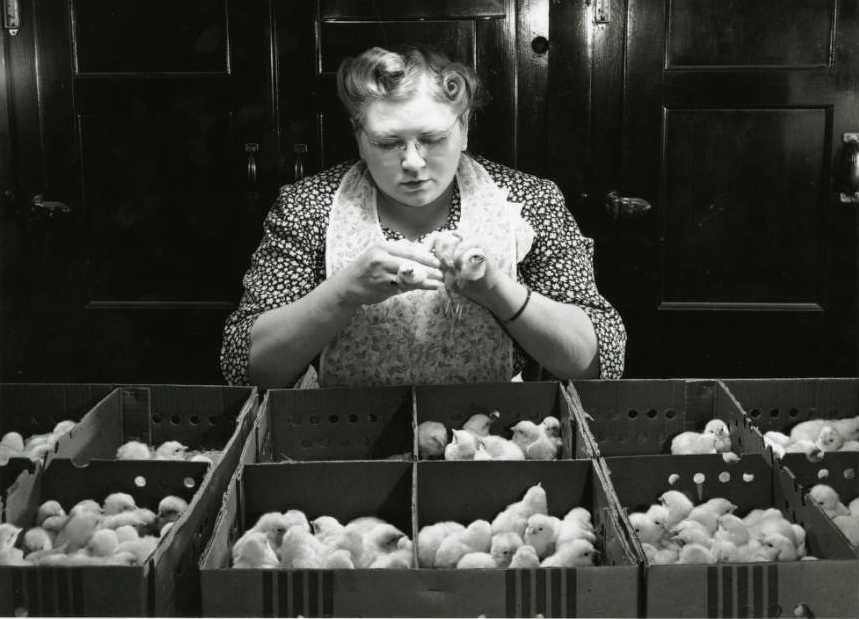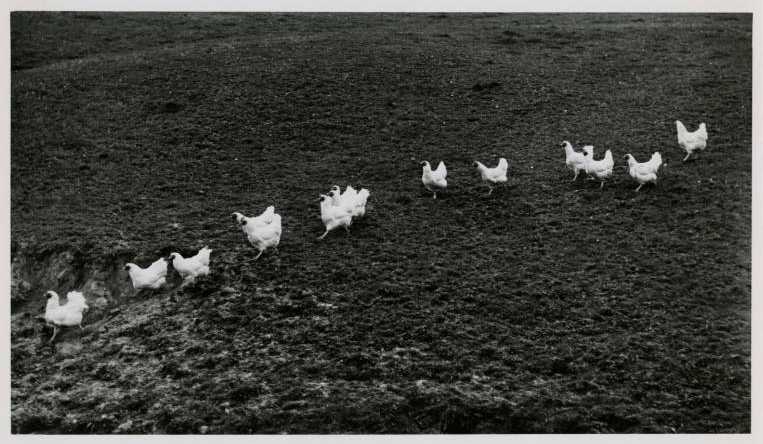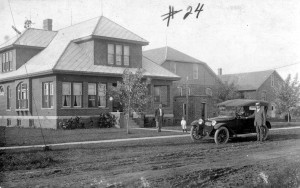“Chick” It Out!

Big news out of the Ohio Historical Society and Ohio Village this summer, as we invite you to come in and visit our new flock of chickens! The village chickens will have a coop behind the Livery Stable (near the northeast corner of the village), and each morning the hens will be turned loose to roam. At closing time, they will be rounded up, fed, and returned safely to the coop. At the end of the summer, the chickens will be adopted out.
The chickens are from the Meyer Hatchery in Polk, Ohio, and are from two different “heirloom” breeds:Dominiques(pronouncedDominkers) and Brown Leghorn. “Heirloom,” or heritage, breeds are breeds of animals popular in America in the past, but that today are listed as endangered. Because modern farming has changed, these breeds are no longer needed by large farmers, and thus have declined in population over the past decades. Come to Ohio Village to learn more about these breeds and the history of chickens in America and Ohio.

For most of human history, chickens have been a familiar part of every household. Almost anyone living in the country or in a small town or village kept at least a few chickens around for the eggs and the table. These backyard flocks were referred to as “dual-purpose” chickens since they supplied both eggs and meat. After the Civil War, as America slowly moved from a rural, agriculture-based society to a more urban one, egg and meat production also moved out of the backyard and into large “factory” farms. More breeds of chickens were developed, some of which focused on creating the perfect “dual-purpose” bird, while others focused on just eggs or just meat. Today the raising of chickens is making a comeback, most notably in urban areas, as consumers work to reconnect themselves to their food supply.

A significant story in Ohio’s own history with chickens and the poultry industry involves the Uhl Hatchery (seen at right) in New Washington, Ohio. The city is known as the “Birthplace of the Baby Chick Industry” thanks to the hatchery, which was the first commercial hatchery in the United States and initiated the shipment of baby chicks by rail in 1900.
Want to help make chicken-history? Every chicken flock needs a name!Send us a message on Facebookwith a name suggestion by the end of today, May 24th. The suggestions will be narrowed down to three and then it will be up to our Facebook fans to vote on the official name. You can also watch a live-feed of the adorable chicks before they’re moved to the village in mid-June, and come visit the free-roaming flock this summer!
Thanks to Lily Birkhimer, Digital Projects Coordinator at the Ohio History Connection, for this week’s post!



Leave a Reply
You must be logged in to post a comment.